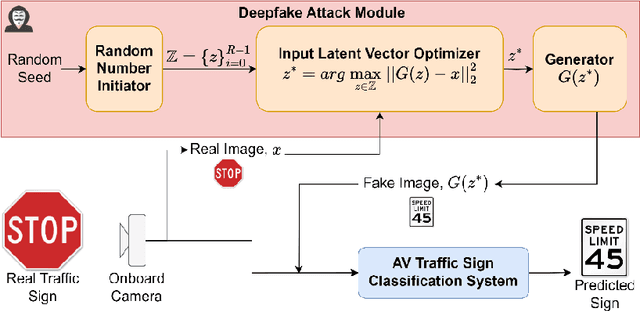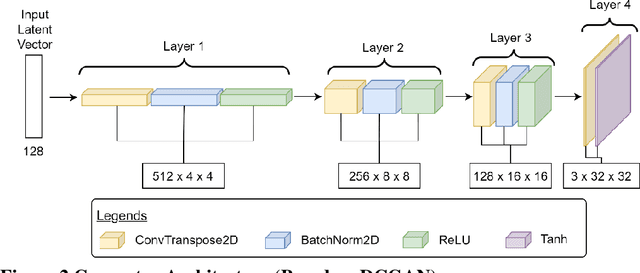Shaozhi Li
A Hybrid Quantum-Classical AI-Based Detection Strategy for Generative Adversarial Network-Based Deepfake Attacks on an Autonomous Vehicle Traffic Sign Classification System
Sep 25, 2024



Abstract:The perception module in autonomous vehicles (AVs) relies heavily on deep learning-based models to detect and identify various objects in their surrounding environment. An AV traffic sign classification system is integral to this module, which helps AVs recognize roadway traffic signs. However, adversarial attacks, in which an attacker modifies or alters the image captured for traffic sign recognition, could lead an AV to misrecognize the traffic signs and cause hazardous consequences. Deepfake presents itself as a promising technology to be used for such adversarial attacks, in which a deepfake traffic sign would replace a real-world traffic sign image before the image is fed to the AV traffic sign classification system. In this study, the authors present how a generative adversarial network-based deepfake attack can be crafted to fool the AV traffic sign classification systems. The authors developed a deepfake traffic sign image detection strategy leveraging hybrid quantum-classical neural networks (NNs). This hybrid approach utilizes amplitude encoding to represent the features of an input traffic sign image using quantum states, which substantially reduces the memory requirement compared to its classical counterparts. The authors evaluated this hybrid deepfake detection approach along with several baseline classical convolutional NNs on real-world and deepfake traffic sign images. The results indicate that the hybrid quantum-classical NNs for deepfake detection could achieve similar or higher performance than the baseline classical convolutional NNs in most cases while requiring less than one-third of the memory required by the shallowest classical convolutional NN considered in this study.
 Add to Chrome
Add to Chrome Add to Firefox
Add to Firefox Add to Edge
Add to Edge